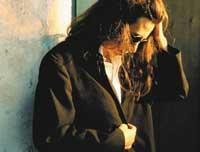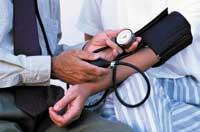Dizziness: bleeding is in the causes
That is where we are presented with the first difficulty. We will begin to tell the doctor this feeling of dizziness, which may not be so easy. Different expressions can be used to explain what we feel: imbalance, weakness, discomfort. Or even burtzoroa, have your head as “empty”, vertigo and discomfort. Both the symptoms of this situation that we call with the term dizziness, and the reasons that cause it, constitute a compact and closed shell that often considerably hinders the release of this knot (that is, the precise diagnosis). To begin with, we will distinguish three different pictures: loss of consciousness, vertigo and dizziness without loss of consciousness and vertigo.
Loss of knowledge

This situation, also known as syncope, sedition, etc., is very common. In the blood circulation there is a momentary alteration (and very short duration) that produces a decrease in blood pressure. The affected person will fight until the total loss of consciousness and will normally be impregnated with sweat. Sometimes it happens suddenly, other times the view can start as it blurs, the drunk of confusion, etc.
The causes that can lead to this situation are many and varied: some intense emotion, a situation of acute stress, an uncomfortable vision, a sudden agitation, standing for a long time, in the sun or in hot and charged environments... These losses of consciousness are the most common, have no gravity and do not require medical treatment. To recover, just lie down, lift your legs and bend your head and put it between your legs for a few minutes. But if by syncope the person falls to the ground, it must be seen whether or not he has suffered damage from the impact (cuts, bruises, etc. ). ).
However, syncope of these characteristics can also be a sign of a more serious alteration, such as heart disease, such as arrhythmias, heart conduction disorders, or valve disease. Therefore, although the loss of consciousness seems irrelevant, it is advisable to go to the doctor to rule out a heart disease.
Vertigo
Feeling of movement with dizziness, and when it seems to us that the things or objects around us have also turned and moved, we fall and in addition, nausea, vomiting, sweat, etc. when we feel sorry, we are surely facing a vertigo. Very uncomfortable feeling, which can last for seconds, minutes, hours. There are many causes that cause this type of vertigo: the most frequent are the so-called benign postural paroxysmal vertigo, which can be quite serious situations. Moving your head starts a dizzying crisis, which can last a second or a minute, with an incredible sense of distress that can cause the person to fall. This type of vertigo has pharmacological treatment but rehabilitation is more effective (head movement exercises to train and remake the balance organ).
Virus infections, especially in winter, can affect the ear or vestibular nerve causing dizziness. In these cases they are ephemeral, benign and respond well to medical treatment.

In adults, and in advanced ages, Menier syndrome may be due to vertigo: in these cases there is a hearing loss (hearing loss), sounds are heard and vertigo crises appear.
In older people, dizziness can also occur, who have had a stroke (thrombosis, ischemia, embolism).
To treat these vertigo, the doctor currently has numerous therapeutic methods. However, vertigo is not always eliminated. In general, when a vertigo crisis occurs, a complete neurological and otolaryngological study should be performed on this person to determine the cause of vertigo (diagnosis) and implement the corresponding treatment in each case.
Other dizziness
There are other dizziness that appear without syncope or loss of consciousness, or vertigo. They are not extremely serious, but their cause is difficult to determine.
Experience tells us that those who suffer this type of dizziness have a series of symptoms or sensations: as if they had the “empty” head, blurred vision, the feeling that they will fall or lose consciousness, but it is never so.
All the studies and examinations performed on the patient provide normal data, in which the symptoms are associated with other situations: low tension, anemia, hypoglycemia, as well as high blood pressure, although in most cases the symptoms are foreign to these situations.
The feeling of dizziness without syncope or vertigo appears in stressed, anxious, or mild depression. Also in people with migraine, fatigue, work stress, insomnia or visual problems. Finally, those who breathe more air than normal or breathe more often (i.e. with hyperventilation) often have this feeling of dizziness.





